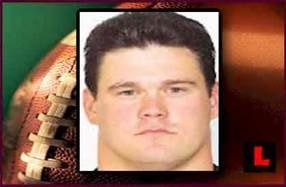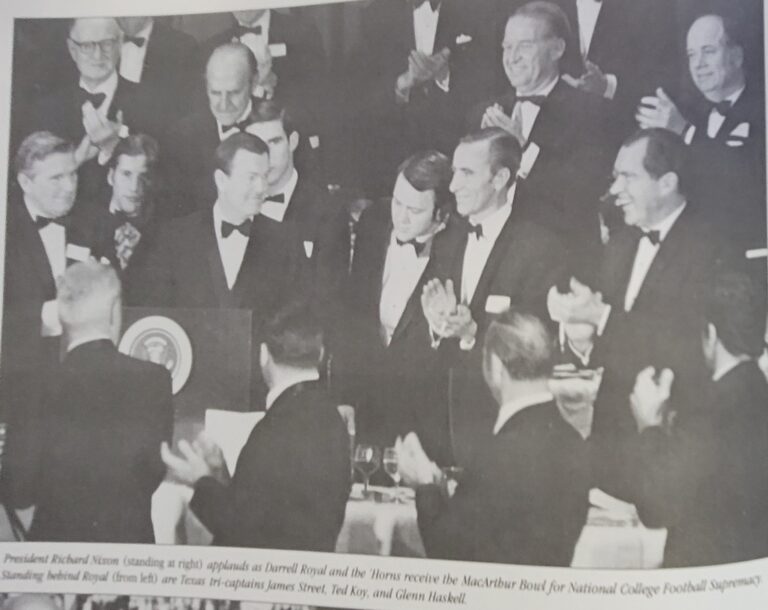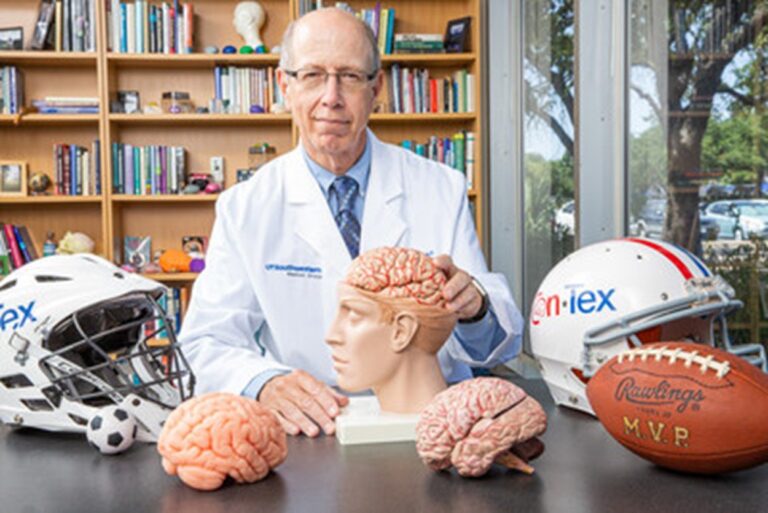Terry Frei- Ploetz Article
Terry Frei: tfrei@denverpost.com or @TFrei
-
Autopsy: Ex-Texas Longhorns Tackle Greg Ploetz Had Stage 4 CTE
-
Greg And Deb Ploetz Came To State Hoping Marijuana Oil Could Fight CTE
By Terry Frei
The Denver Post
Posted: 12/20/2015 05:12:47 PM
Dec. 11, Deb Ploetz Took The Phone Call From Doctors And An Administrator At The Concussion Legacy Foundation At Boston University.
She Was Told That An Autopsy Of Her Husband’s Brain Had Determined That Greg Ploetz, Who Spent Part Of His Youth In Colorado Springs Before He Started At Defensive Tackle For The Texas Longhorns’ 1969 National Champions, Suffered From Stage 4 Of Chronic Traumatic Encephalopathy (CTE).That’s The Most Severe, Most Advanced Stage, Considered To Cause Full-Blown Dementia. CTE Is Believed To Be Caused By Repeated Head Trauma And Because Ploetz Played Football Since He Was 10 Years Old, Doctors Told Deb They Were Confident The Sport Caused His Brain Injuries.
The News Came Seven Months After Greg, 66, Died In A Little Rock, Ark., Hospice.
It Provided Additional Explanations For Deb, Who Brought Greg To The Denver Area In Spring 2014 To Be Able To Use Marijuana Oils And Extracts In Treatment Of What Then Was Diagnosed As Frontal Lobe Damage And Mixed Dementia.
“It Gave Me Closure In Confirmation Of What I Thought He Had,” Deb Said From Dallas. “The CTE Was Foremost, All Through His Brain. He Was Miserable.”
Ploetz’s Father, Frederick, Was A Decorated Fighter Pilot In World War II And A Career Air Force Man Stationed In Colorado Springs When Greg Played Young American League Football There. Greg Was About To Enter Wasson High School When His Father Was Transferred To Perrin Air Force Base In Sherman, Texas, And That’s Where Greg Attended High School And Caught The Attention Of The Texas Coaching Staff.
“I Was Recruited By Practically All The Southwest Conference,” Ploetz Said In 2001. He Said He Visited Most Of The League Schools And Brought Up A Specific Trip To Oklahoma. He Couldn’t Identify The Assistant Coach Who Recruited Him — “The One Who Ran The Cowboys For A While” — Until Being Prompted. “Switzer, Barry Switzer,” He Said Before Chuckling And Adding, “Names Are Something That Are Starting To Escape Me Now.”
That Seemed An Innocent Exchange At The Time.
“I Cringe”
At Texas, Ploetz Was Listed At 5-Foot-10 And 205 Pounds. He Started Out As A Linebacker Before Being Shifted To Defensive Tackle As A Junior. He Played In The 1969 Texas-Arkansas Showdown For The National Title With A Cracked Bone In His Ankle, And His Toughness Never Was In Doubt. Away From The Field, Though, He Was A Fine-Arts Major And Was Selected UT’s Top Art Student.
“As I Took The Life Drawing Classes, We Had Nudes, Of Course,” Ploetz Said. “The Guys Literally Would Be Waiting At The Dorm: ‘Here He Comes! Let’s Take A Look!” They’d Get My Pad Out And Look At The Girls I Was Drawing.”
Greg And Deb Ploetz Walk Their Dog In 2014 At An Arvada Facility Designed To Care For Patients With Dementia. (Andy Cross, The Denver Post)
GRANDFATHER PLOETZ
He Eventually Became A Popular Coach, Art Teacher And Artist In The Fort Worth Area. But He Started To Show Signs Of Confusion And Deterioration In 2005 And Stopped Teaching In Early 2009. His Condition Progressively Got Worse.
His Stay In Colorado Last Year Was Short-Lived. After Disagreements Over Whether He Could Be Openly Administered The Marijuana Byproducts, Even By His Wife, At State- And Locally Monitored Care Facilities, The Ploetzes Left The State Late In The Year.
After Greg Died, Deb Donated His Brain To The Boston University Study, Then Known As The Sports Legacy Institute. It Was Renamed The Concussion Legacy Foundation In September.
The Imminent Release Of The Movie “Concussion,” Which Focuses On The CTE Issue And Former NFL Players, Has Brought Renewed Attention To The Topic Of Repeated Head Trauma. Several Former NFL Players, Including Junior Seau And Dave Duerson, Committed Suicide And Later Were Found To Have Been Suffering From CTE. The Boston Facility Also Determined That Former Denver Broncos Running Back Rob Lytle Had “Moderate To Severe” Symptoms Of CTE When He Died Of A Heart Attack At Age 56 In 2010.
“I Think The Sport Is Violent,” Deb Ploetz Said. “To Me, It’s Like The Gladiators Of Our Age. But It’s Not Going Anywhere. I Like To Watch It Until I See The Hitting. And Then I Cringe And Turn It Off. … I Have A 2-Year-Old Grandson, And I Don’t Want Him To Play.”
Greg Ploetz, Who Played Football For The University Of Texas Longhorns On The 1969 Championship Team. Ploetz Is Now Suffering From Severe Dementia. (Andy Cross, The Denver Post)
“Knew He Was Dying”
In April, A Federal Judge Approved A Settlement That Could Reach $1 Billion In A Class-Action Lawsuit By Former Players Against The NFL, Calling For Payments To Former Players With Medical Conditions Tied To Football-Related Head Trauma. Some Former Players Have Fought The Settlement As Insufficient.
Deb Ploetz Remains An Advocate Of The Open Use Of Medical Marijuana Products, Such As Oils, To Manage Symptoms Of Alzheimer’s And Dementia.
“It Gave Greg Some Dignity And Peace Of Mind Before He Died,” She Said. “I Knew He Was Dying, But That Was Better Than Using Other Drugs That Make You Hallucinate. I Took Him Off Those Twice, And He Quit Hallucinating. That Part’s A Huge Story To Me.”
As Catharsis, Deb Also Sat Down In Recent Days And Wrote Out Her Thoughts. There, She Noted: “In The Beginning, I Felt His Inability To Remember Things Like Keys, Wallet, Time, Math, Language, Was Just A Sign Of Getting Older. I Also Thought His Inability To Learn New Things Like The Computer, Cellphone And TV Remotes Was A Sign Of Not Being Interested.” She Noted That He Began To Complain Of Headaches And Lost The Ability To Remain Engaged In Conversations.
“When He Lost His Job At Aledo High School In February 2009, He Then Went Downhill,” She Wrote. “He Lost His Identity, His Self-Esteem (And) His Colleagues, And He Became Very Depressed. He Would Say, ‘How Did Football Cause This Damage To My Brain, If It Is Now Only Showing Up?’ He Felt Very Isolated And Forgotten, Even Though Some Close Family Members And Friends Tried To Continue To Support Him. He Kept Saying He Wanted To Go Home.”
She Said She Came To Interpret That As Meaning He Wanted His Life To Return To How It Was Before The Onset Of His Symptoms.
“One Of The Saddest Parts Was When He Lost His Ability To Make Art,” Deb Wrote. “He Was Going To Spend His Golden Years Making Art, And It Was Stripped From Him. … He Finally Quit Trying.”
In April, A Former Teammate And One Of His Best Friends — Ex-Texas Running Back Bobby Callison — Visited Greg In Little Rock, Ark. He Was Representing Himself And The Lettermen Support Group, Former UT Players Who Had Provided Financial And Other Support To The Ploetz Family. When Greg Fell, As He Did Often, Callison Bent Down To Help Him. “Buddy,” He Said Softly, “There’s Going To Be A Time You’re Not Going To Want To Get Up.”
Ploetz Died The Next Month.
“You Could See The Fighting Spirit In My Husband Until The Day He Died,” Deb Wrote. “When He Was Able To Speak When On The Marijuana, He Would Say, ‘I Want To Get Better.’ He Said This One Month Before He Died. He Fought For His Life And Was A Champion.”










